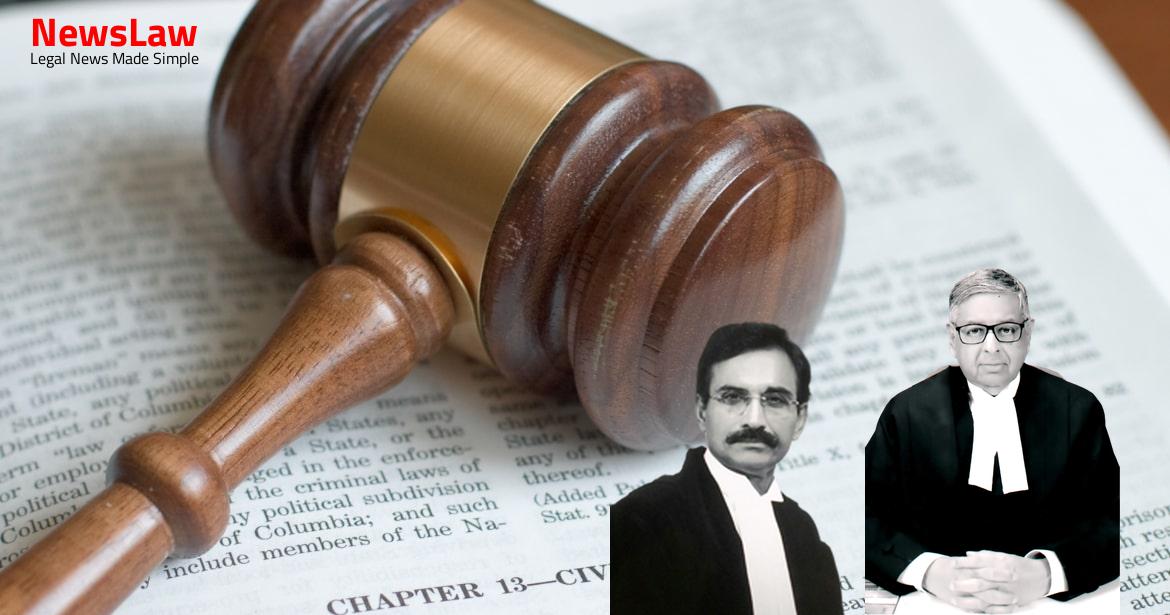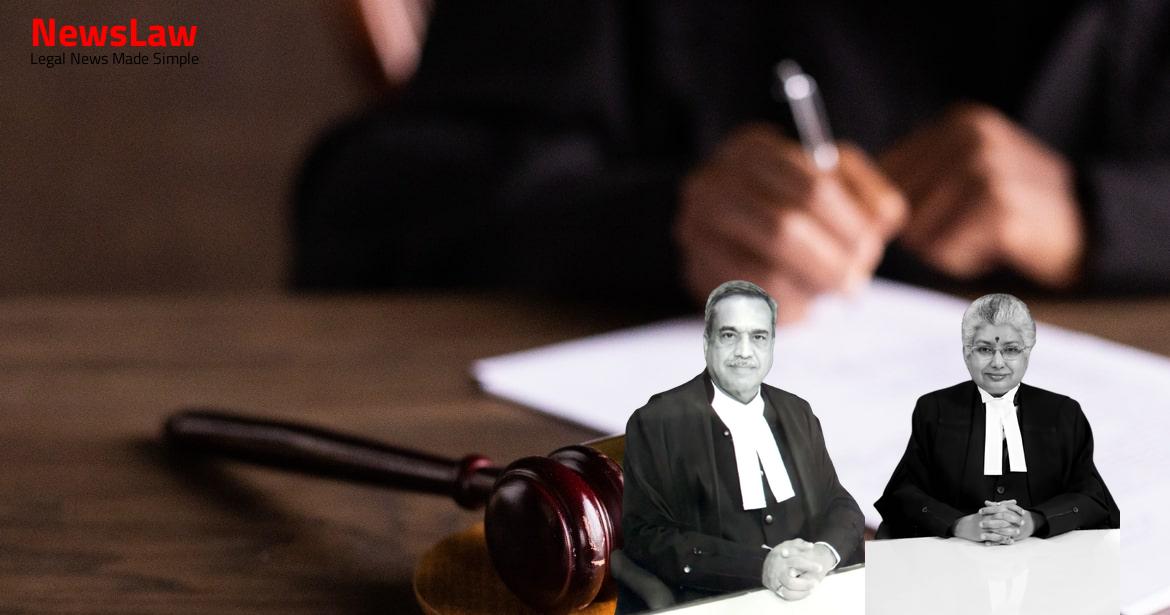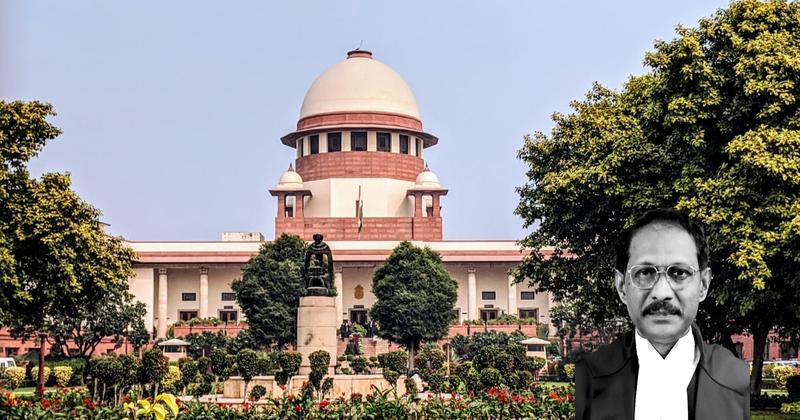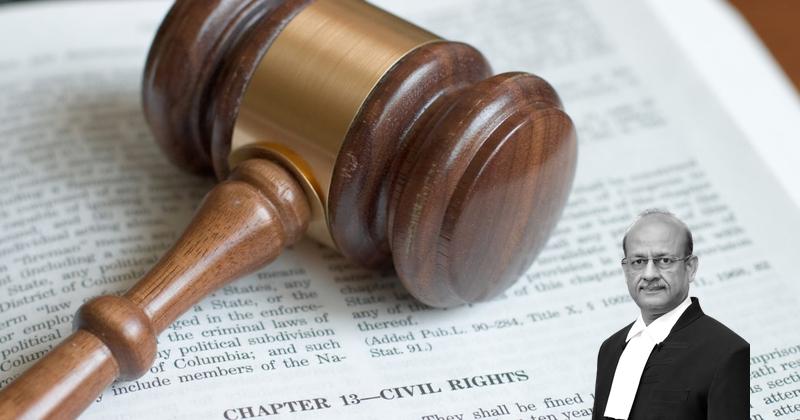The case delves into a seniority dispute among District Judges in the Higher Judicial Services, shedding light on the intricacies of legal interpretations and precedents. The court’s meticulous legal analysis unravels the complexities surrounding the determination of seniority, pitting various rules and landmark judgments against each other. Stay tuned for a detailed exploration of the evolving landscape of seniority norms in the judiciary.
Facts
- The Writ Petitioner filed a Writ Petition in the High Court of Madhya Pradesh on 24.12.2017, which is still pending.
- Mr. N.P. Singh’s representation was rejected on 12.12.2008.
- Smt. Giribala Singh also filed a representation for restoration of original seniority, which was not accepted.
- The Petitioners whose seniority was affected filed representation to the Administrative Committee which was rejected.
- The inter-se seniority of persons appointed to the service by direct recruitment shall be in the order of merit in the selection list.
- The seniority of members promoted under specific clauses of HJS Rules shall be as per seniority in the lower cadre.
- The Petitioners have approached the Court challenging the decisions related to seniority and the revised gradation list.
- An application for impleadment by Mr. N.P. Singh was allowed for determining seniority of Civil Judges promoted after LCE based on seniority in the lower cadre.
- The Petitioners are Members of the Higher Judicial Services working as District Judges in Madhya Pradesh.
- The Full Court resolution approving the Administrative Committee’s decision is also challenged.
- An Interlocutory Application for impleadment has been allowed.
- The seniority of District Judges was altered based on their seniority in the lower cadre, as directed in the All India Judges’ Association judgment.
- A channel of promotion based on merit in Limited Competitive Examination (LCE) was introduced to incentivize junior officers for quicker promotion.
- A resolution by the High Court of Madhya Pradesh in 2017 stated that merit in LCE would not be relevant for altering inter se seniority in the feeder cadre.
- Recommendations by the Administrative Committee were approved by the Full Court in December 2017.
- Initially, recruitment to Higher Judicial Services was through promotion from Subordinate Judicial Service and direct recruitment.
- 50% of posts in Higher Judicial Services were to be filled by promotion based on merit-cum-seniority, and 25% strictly on merit through LCE for Civil Judges (Senior Division) with a qualifying service of at least 5 years.
- The Madhya Pradesh Higher Judicial Services (Recruitment and Conditions of Service) Rules of 1994 were amended in 2005 to accommodate these directives.
- Rule 5 of the 1994 Rules detailed the method of appointment for promotion and direct recruitment.
- Seniority of members of Higher Judicial Services was addressed in Rule 11, determining seniority based on continuous officiation and appointment dates.
- The Full Court decision in 2007 established that the seniority of Civil Judges selected through LCE would be based on merit.
Also Read: Legal Analysis on Seniority Fixation in Contempt Petitions
Arguments
- The Petitioners argue that their seniority as District Judges was correctly fixed as per the All India Judges’ Association judgment.
- They contend that their seniority in the LCE quota was determined properly as per the recommendations by the High Court.
- Petitioners rely on the Rule 11 proviso in the 1994 Rules regarding seniority among those promoted on the same date.
- They claim that the agenda in 2017 related to the seniority of District Judges selected by direct recruitment.
- Petitioners state that their settled seniority at the time of promotion cannot be revised under Rule 11 (1) of the 2017 Rules.
- The Administrative Committee decided that seniority of LCE candidates should be based on merit in the examination and recommendation order.
- Lawyers representing impleaded Respondents argue against the Petitioners’ interpretation citing Dinesh Kumar Gupta’s case as settled precedent on LCE candidate seniority.
- The Administrative Committee’s resolution in 2017, supported by Senior Counsel, stands in line with Rules but differs from prior Full Court decisions.
- Petitioners challenge Dinesh Kumar Gupta’s case as per incuriam, stating it conflicts with All India Judges’ Association judgment.
- The dispute revolves around whether LCE candidate seniority should consider previous cadre seniority, as per Rule 11 (4) (b) of the 2017 Rules.
Also Read: Legal Analysis of Decision-making Authority in Municipality Dispute
Analysis
- Roster for filling vacancies based on quota of reserved vacancies shall be maintained for each recruitment year.
- Seniority of persons appointed through different sources shall be determined as per specified criteria.
- After the commencement of the rules, cadre posts in category (a) of Rule 3 shall be filled up by rotation based on fixed quotas in every recruitment year.
- 50% of District Judges posts to be filled by promotion on merit-cum-seniority principle.
- Seniority of those promoted through LCE as Civil Judge (Senior Division) to be based on inter se seniority in lower cadre.
- Court found Administrative Committee’s decision on seniority determination unjustified.
- Introducing promotion channel for District Judges seen as a mere recruitment method by Mr. Dave.
- Importance of maintaining merit-based seniority for promoting Civil Judges to District Judges emphasized.
- Depriving meritorious LCE candidates of seniority based on merit in examination would go against improving Higher Judicial Services members’ calibre.
- Case: Dinesh Kumar Gupta vs. State of Rajasthan
- Issue: Inter se seniority of District Judges promoted through LCE
- Comparison between recruitment rules of Rajasthan Higher Judicial Service and Madhya Pradesh Higher Judicial Service
- Similarity in source of recruitment in Rule 31 of Rajasthan and Rule 5 of Madhya Pradesh Higher Judicial Service Rules
- Seniority of Petitioners determined prior to 2017 Rules cannot be disturbed
- Dispute in the case is about seniority among those promoted through LCE
- Rule 11(1) of the 2017 Rules maintains seniority as it existed before the Rules for those holding substantive posts at the time of Rule commencement
Also Read: Land Dispute Legal Analysis
Decision
- Rule 11 (4) (b) of the 2017 Rules changes the seniority determination criteria from merit to inter se seniority in the lower cadre.
- The resolution of the Administrative Committee approved by the Full Court is overturned due to being contrary to the law established in Dinesh Kumar Gupta’s case.
- The Writ Petition is allowed, and as a result, the gradation list of the District Judges from 01.02.2019 will be revised to align with the law from Dinesh Kumar Gupta’s case.
Case Title: PREM NARAYAN SINGH Vs. HONBLE HIGH COURT OF MADHYA PRADESH (2021 INSC 399)
Case Number: W.P.(C) No.-001069 / 2019



